-
 bitcoin
bitcoin $87959.907984 USD
1.34% -
 ethereum
ethereum $2920.497338 USD
3.04% -
 tether
tether $0.999775 USD
0.00% -
 xrp
xrp $2.237324 USD
8.12% -
 bnb
bnb $860.243768 USD
0.90% -
 solana
solana $138.089498 USD
5.43% -
 usd-coin
usd-coin $0.999807 USD
0.01% -
 tron
tron $0.272801 USD
-1.53% -
 dogecoin
dogecoin $0.150904 USD
2.96% -
 cardano
cardano $0.421635 USD
1.97% -
 hyperliquid
hyperliquid $32.152445 USD
2.23% -
 bitcoin-cash
bitcoin-cash $533.301069 USD
-1.94% -
 chainlink
chainlink $12.953417 USD
2.68% -
 unus-sed-leo
unus-sed-leo $9.535951 USD
0.73% -
 zcash
zcash $521.483386 USD
-2.87%
Should I buy a full position when EMA12 crosses EMA26?
The EMA12/EMA26 crossover can signal bullish or bearish trends, but entering a full position on this alone is risky—confirm with volume, MACD, and support/resistance levels.
Jul 30, 2025 at 12:50 am
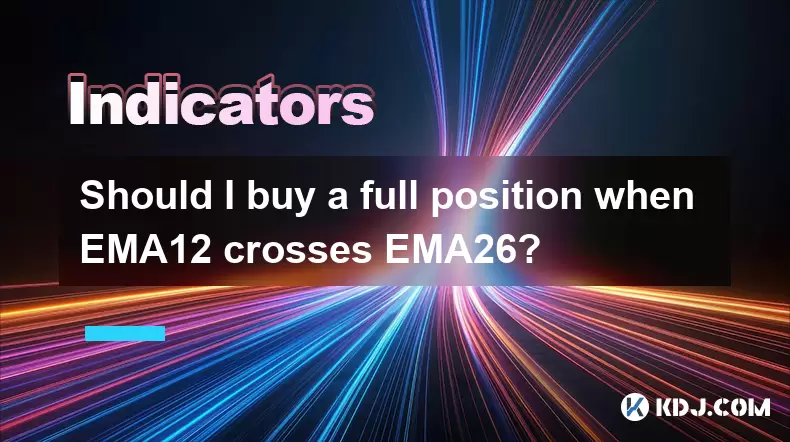
Understanding the EMA12 and EMA26 Crossover
The Exponential Moving Average (EMA) is a widely used technical indicator in cryptocurrency trading that gives more weight to recent price data. The EMA12 represents the 12-period EMA, while the EMA26 refers to the 26-period EMA. When the EMA12 crosses above the EMA26, it generates what is commonly known as a 'golden cross', signaling a potential bullish trend. Conversely, when the EMA12 crosses below the EMA26, it forms a 'death cross', indicating a bearish reversal. These crossovers are foundational components of the MACD (Moving Average Convergence Divergence) indicator. While many traders interpret the EMA12/EMA26 crossover as a buy signal, acting on it by purchasing a full position requires careful evaluation.
Risks of Buying a Full Position on a Single Signal
Entering a full position—allocating 100% of available capital—based solely on an EMA12/EMA26 crossover is an aggressive strategy with significant risk. Cryptocurrency markets are highly volatile, and false signals are common. A crossover may occur during a minor price fluctuation rather than the start of a sustained trend. For example, in a sideways or choppy market, the EMAs may cross back and forth multiple times, leading to whipsaws. If a trader buys a full position during such a false breakout, they risk substantial losses when the price reverses. Therefore, relying on a single technical signal without confirmation increases exposure to market noise.
Confirming the Crossover with Additional Indicators
To improve the reliability of the EMA crossover signal, traders should incorporate additional technical tools. One effective method is to analyze the MACD histogram alongside the crossover. A bullish crossover accompanied by a rising MACD histogram above the zero line strengthens the signal. Another confirmation comes from volume analysis. A genuine breakout typically coincides with a noticeable increase in trading volume. Low volume during the crossover suggests weak market participation and reduces the probability of a sustained move. Also, examining support and resistance levels helps determine whether the crossover occurs near a key price zone. For instance, a crossover near a strong resistance level may fail, while one near support with bullish confirmation is more credible.
Implementing a Step-by-Step Entry Strategy
Instead of buying a full position immediately, a more prudent approach involves phased entries. This method reduces risk and allows traders to validate the trend as it develops. Consider the following steps:
- Wait for the crossover to close: Ensure the EMA12 remains above EMA26 at the end of a candlestick period (e.g., 4-hour or daily).
- Check for bullish confirmation: Look for additional bullish patterns such as a hammer candle, bullish engulfing, or higher lows on the price chart.
- Monitor RSI (Relative Strength Index): A crossover with RSI between 50 and 70 suggests momentum is building without being overbought.
- Enter a partial position: Allocate 30% to 50% of capital on the initial confirmation.
- Add to the position: If price continues to rise and closes above a recent swing high, add another 30%.
- Set a trailing stop-loss: Protect gains by adjusting the stop-loss upward as the price increases.
This strategy avoids overcommitting at the outset and adapts to market behavior.
Backtesting the EMA Crossover Strategy
Before applying any strategy in live trading, backtesting on historical data is essential. Use a trading platform like TradingView or MetaTrader to apply the EMA12 and EMA26 indicators to past price charts of assets such as BTC/USD or ETH/USD. Analyze how the crossover performed across different market conditions—bull markets, bear markets, and ranging markets. Note the frequency of false signals and the average profit-to-loss ratio. Adjust the EMA periods if needed (e.g., testing EMA10 and EMA20) to optimize performance. Backtesting helps quantify the strategy’s effectiveness and builds confidence in its real-world application.Position Sizing and Risk Management
Even with a confirmed EMA crossover, position sizing plays a critical role in long-term success. A full position may yield high returns in a strong trend, but it also magnifies losses during reversals. A disciplined trader limits risk per trade to 1% to 2% of total capital. For example, if trading a $10,000 account, the maximum loss on a single trade should not exceed $100 to $200. To calculate position size: - Determine the entry price and stop-loss level.
- Calculate the difference between entry and stop-loss (risk per unit).
- Divide the maximum risk amount by the risk per unit to get the number of units to buy.
This ensures that even if the trade fails, the impact on the overall portfolio remains manageable.
Frequently Asked Questions
Can the EMA12/EMA26 crossover be used on all timeframes? Yes, the EMA crossover can be applied to any timeframe, including 15-minute, 1-hour, 4-hour, and daily charts. However, signals on higher timeframes (e.g., daily) are generally more reliable due to reduced noise and stronger trend validity. Shorter timeframes produce more frequent but less accurate signals.What should I do if the EMA12 crosses back below EMA26 shortly after a buy signal?This indicates a potential false breakout. If you entered a partial position, exit immediately using your predefined stop-loss. Reassess the chart for new confirmation before re-entering. Avoid averaging down without technical justification.
Is the EMA crossover strategy effective in bear markets?In strong bear markets, bullish crossovers often fail. The strategy works best in ranging or bullish markets. Combine it with trend filters—such as a 200-day EMA—to avoid counter-trend trades. If the price is below the 200-day EMA, consider only short positions or stay flat.
How do I adjust the EMA periods for different cryptocurrencies?Some altcoins exhibit higher volatility than Bitcoin. For such assets, consider using shorter EMAs (e.g., EMA8 and EMA17) to capture quicker moves. Always backtest any modified settings on historical data for the specific asset before live trading.
Disclaimer:info@kdj.com
The information provided is not trading advice. kdj.com does not assume any responsibility for any investments made based on the information provided in this article. Cryptocurrencies are highly volatile and it is highly recommended that you invest with caution after thorough research!
If you believe that the content used on this website infringes your copyright, please contact us immediately (info@kdj.com) and we will delete it promptly.
- Anthropic's Claude Opus Shatters Boundaries with 1 Million Token Context Window
- 2026-02-06 04:25:01
- BNB's Trendline Tumble: Where Have the Bulls Gone Amidst Crypto Carnage?
- 2026-02-06 04:05:01
- Claude Opus 4.6 Unleashes Unprecedented Context Window and Code Capabilities for Enterprise AI
- 2026-02-06 04:25:01
- Solana Charts Bold Course for Blockchain Finance with Instant Liquidity Boost
- 2026-02-06 04:20:01
- Bitcoin Plunges Amid DXY Rise and Massive Liquidations: A Perfect Storm?
- 2026-02-06 04:20:01
- Bitcoin Faces Steep Decline Amid Economic Uncertainty, Yet ETF Filings Signal Institutional Persistence
- 2026-02-06 04:15:01
Related knowledge
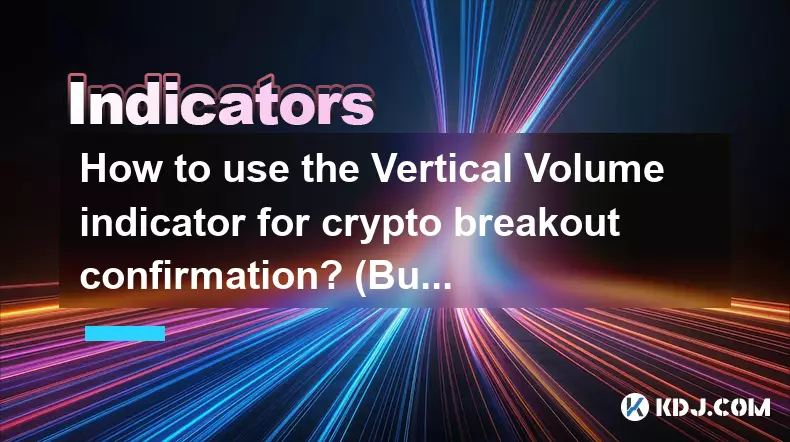
How to use the Vertical Volume indicator for crypto breakout confirmation? (Buying Pressure)
Feb 05,2026 at 04:19am
Understanding Vertical Volume in Crypto Markets1. Vertical Volume displays the total traded volume at specific price levels on a chart, visualized as ...
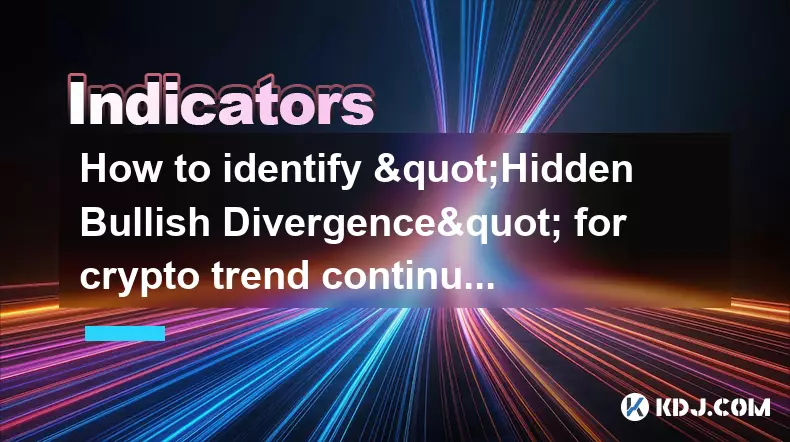
How to identify "Hidden Bullish Divergence" for crypto trend continuation? (RSI Guide)
Feb 04,2026 at 05:19pm
Understanding Hidden Bullish Divergence1. Hidden bullish divergence occurs when price forms a higher low while the RSI forms a lower low — signaling u...
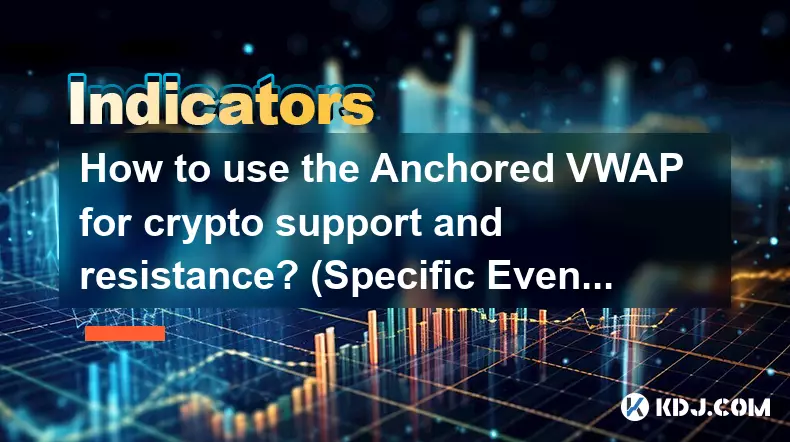
How to use the Anchored VWAP for crypto support and resistance? (Specific Events)
Feb 05,2026 at 01:39am
Anchored VWAP Basics in Crypto Markets1. Anchored Volume Weighted Average Price (VWAP) is a dynamic benchmark that calculates the average price of an ...
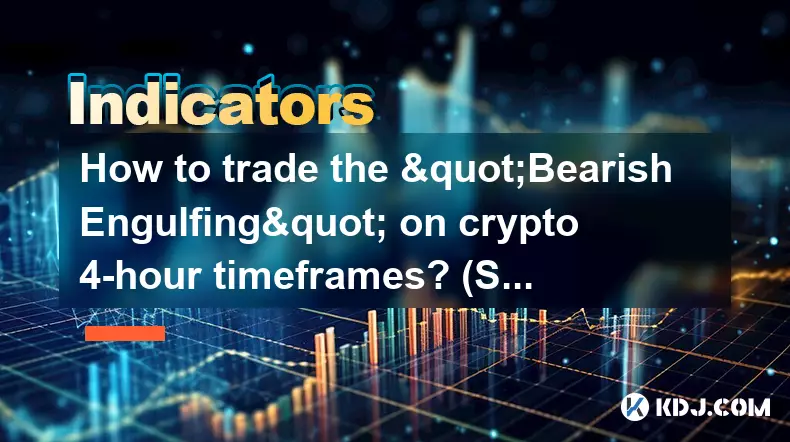
How to trade the "Bearish Engulfing" on crypto 4-hour timeframes? (Short Setup)
Feb 04,2026 at 09:19pm
Bearish Engulfing Pattern Recognition1. A Bearish Engulfing forms when a small bullish candle is immediately followed by a larger bearish candle whose...

How to use the Force Index for crypto trend validation? (Price and Volume)
Feb 04,2026 at 10:40pm
Understanding the Force Index Fundamentals1. The Force Index measures the power behind price movements by combining price change and trading volume in...
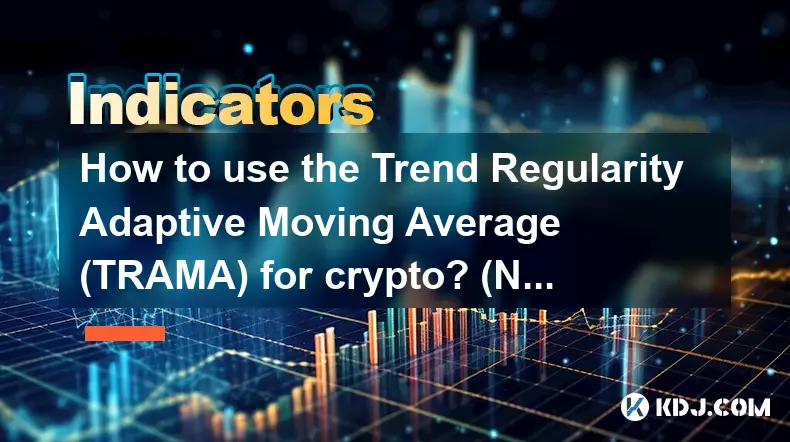
How to use the Trend Regularity Adaptive Moving Average (TRAMA) for crypto? (Noise Filter)
Feb 04,2026 at 07:39pm
Understanding TRAMA Fundamentals1. TRAMA is a dynamic moving average designed to adapt to changing market volatility and trend strength in cryptocurre...

How to use the Vertical Volume indicator for crypto breakout confirmation? (Buying Pressure)
Feb 05,2026 at 04:19am
Understanding Vertical Volume in Crypto Markets1. Vertical Volume displays the total traded volume at specific price levels on a chart, visualized as ...

How to identify "Hidden Bullish Divergence" for crypto trend continuation? (RSI Guide)
Feb 04,2026 at 05:19pm
Understanding Hidden Bullish Divergence1. Hidden bullish divergence occurs when price forms a higher low while the RSI forms a lower low — signaling u...

How to use the Anchored VWAP for crypto support and resistance? (Specific Events)
Feb 05,2026 at 01:39am
Anchored VWAP Basics in Crypto Markets1. Anchored Volume Weighted Average Price (VWAP) is a dynamic benchmark that calculates the average price of an ...

How to trade the "Bearish Engulfing" on crypto 4-hour timeframes? (Short Setup)
Feb 04,2026 at 09:19pm
Bearish Engulfing Pattern Recognition1. A Bearish Engulfing forms when a small bullish candle is immediately followed by a larger bearish candle whose...

How to use the Force Index for crypto trend validation? (Price and Volume)
Feb 04,2026 at 10:40pm
Understanding the Force Index Fundamentals1. The Force Index measures the power behind price movements by combining price change and trading volume in...

How to use the Trend Regularity Adaptive Moving Average (TRAMA) for crypto? (Noise Filter)
Feb 04,2026 at 07:39pm
Understanding TRAMA Fundamentals1. TRAMA is a dynamic moving average designed to adapt to changing market volatility and trend strength in cryptocurre...
See all articles























![[Geometry Dash - Power Gauntlet] Rush by DHaner (with coin) [Geometry Dash - Power Gauntlet] Rush by DHaner (with coin)](/uploads/2026/02/05/cryptocurrencies-news/videos/origin_6984a77c2dcad_image_500_375.webp)


















































